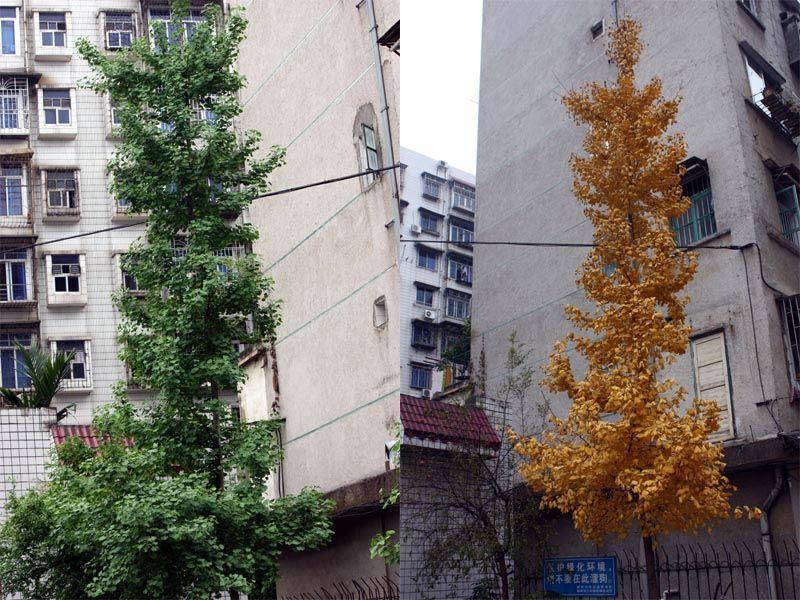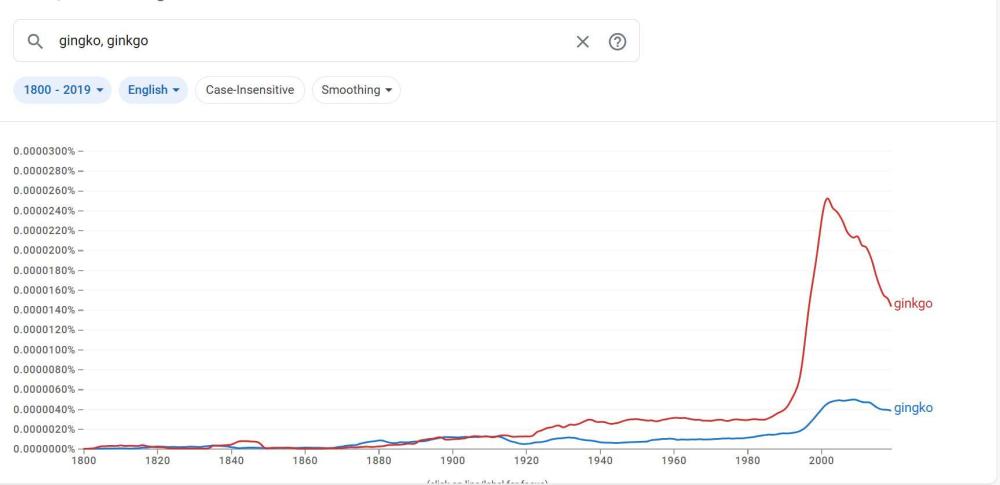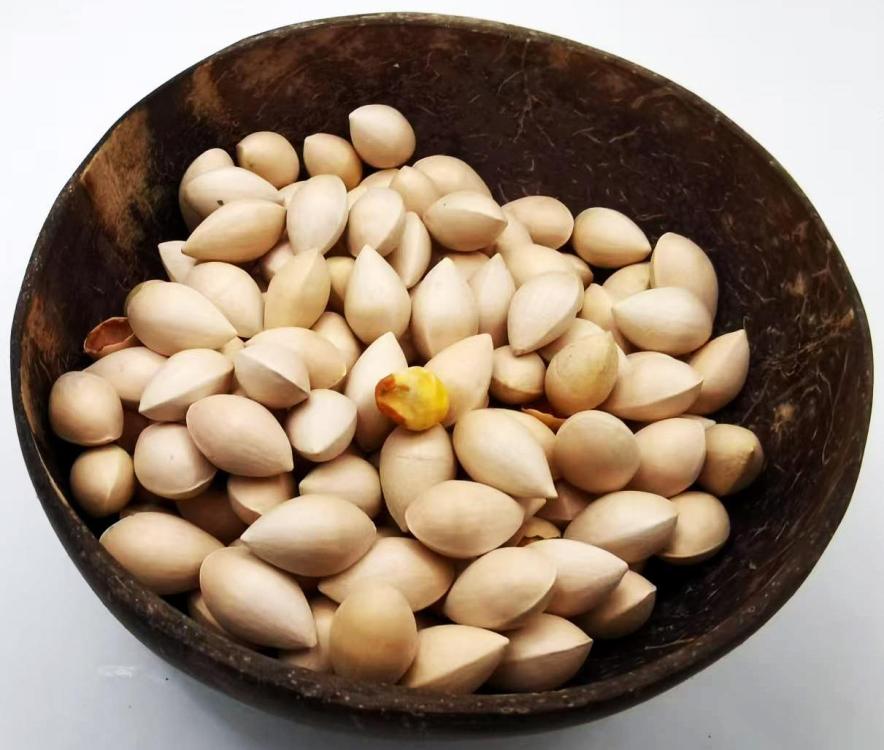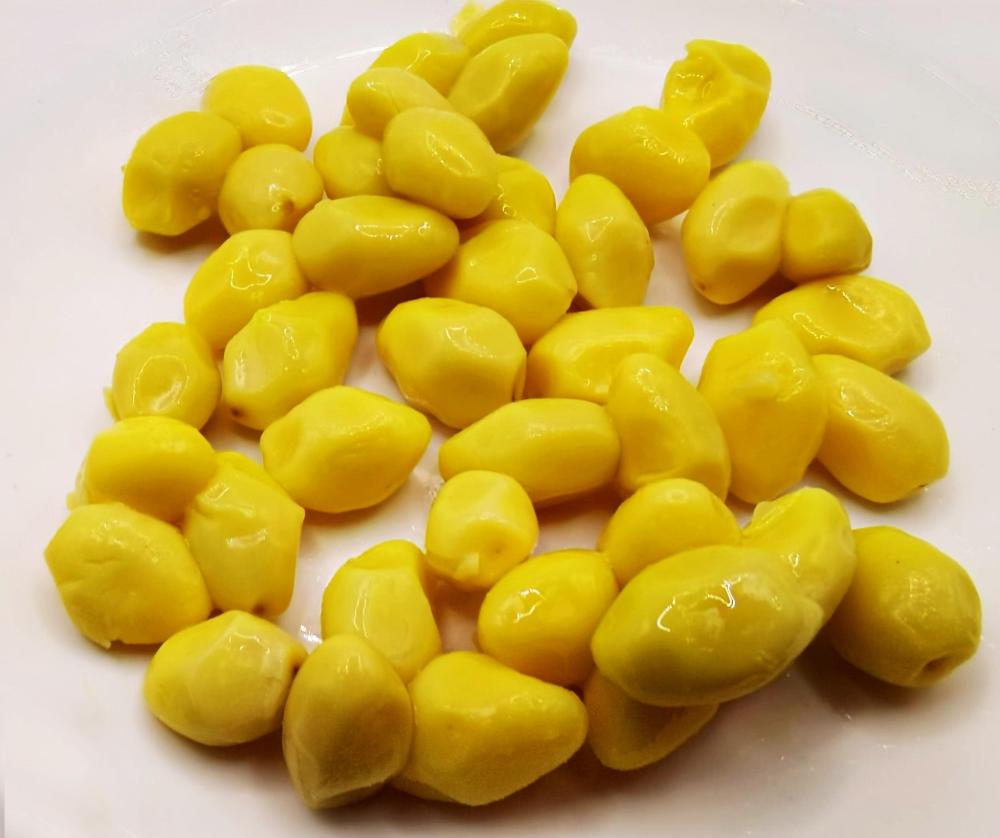Here is a tale of mistranslation, mispronunciation, mishearing and general linguistic chaos much like my daily life.

Gingko Tree in summer (left) and (winter) - Liuzhou
白果 (bái guǒ, literally white nut), Gingko biloba is a living fossil dating back 270 million years and native to China. The trees are extremely long-living with examples still alive and well after 1400 years. The trees were Introduced to Japan in the 1300s and became known in Japanese as 銀杏 (gin kyo), literally ’silver apricot’ from the Chinese 银杏 (yín xìng). They are unrelated to apricots or anything else. This Japanese name was then mispronounced / misspelled when picked up by western botanists and when misheard and transliterated became gingko or ginkgo. Generally, both spellings are acceptable today, but ginkgo being preferred. Gingko is closer to the Chinese pronunciation of 银果 (yín guǒ), meaning ‘silver nut’, but not used to mean either gingko or ginkgo!
😕
Google N-gram showing relative usage of the two spellings.
Whatever you call them, the nuts are credited by TCM with curing all sorts of diseases including dementia, asthma, bronchitis, and kidney and bladder disorders, although there is no conclusive evidence for these claims.
Unshelled Gingkgo nuts
They are widely used in soups, stir-fries, and hot pots as well as the famous Buddhist vegetarian dish 罗汉斋 (luó hàn zhāi), “ often referred to in English as “Buddha’s Delight” although the Chinese just means “Buddha’s Vegetarian Diet”.
Shelled, cooked nuts
They also featured in my dinner last night! https://forums.egullet.org/topic/166082-dinner-2024/?do=findComment&comment=2438490





